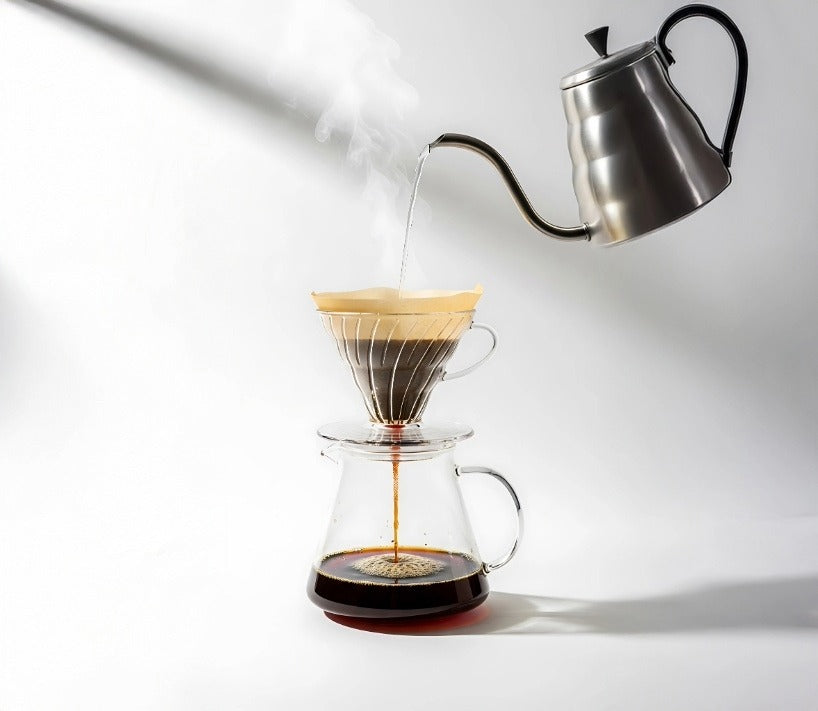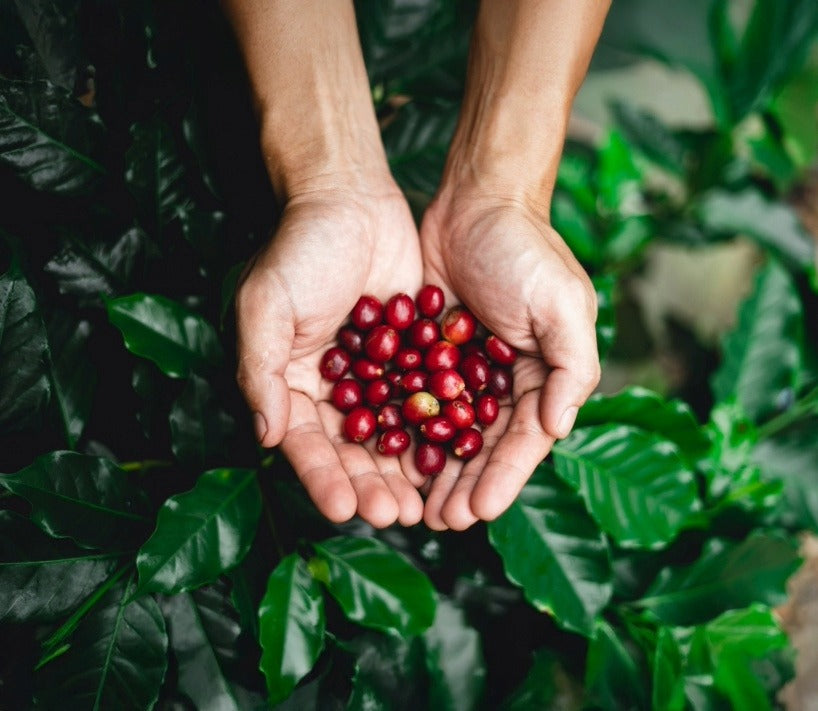Freshest Craft Coffee Online Is Best
June 05, 2025 4 min read
Freshest Craft Coffee Online: How I Keep Your Beans Younger Than Your Latest Selfie
You know that unmistakable moment when you realize the “fresh ground aroma” floating out of a grocery-store coffee aisle is just yesterday’s air freshener trying its best? Yeah—been there, sniffed that. I started hunting for the Freshest Craft Coffee Online (there, I said the magic phrase) the day I learned beans can lose more personality than a phone battery on 1 %. The internet felt like a jungle of glossy photos, mysterious roast dates, and shipping ETAs as vague as my dog’s sense of personal space.
So I did exactly what any obsessive home-brewing extrovert would do: I dug into the science, interrogated roasters, and tested enough beans to qualify for a caffeine-sponsored time-travel experiment. Lucky you—I wrote down what actually matters so your next cup of the best coffee at home doesn’t taste like a cardboard reunion tour.
Let’s Break Down Freshness (Without Breaking Your Brain)
1. What Exactly Is “Fresh” Anyway?
Most pros define “peak flavor” as 4–14 days after roast for filter brewing and 7–21 days for espresso. Before that, beans are still off-gassing CO₂ like a freshman chemistry volcano; after that, aromatics fade faster than your New Year’s gym membership.
Quick Math: Every 24 hours, whole beans can lose 5–10 % of their volatile aroma compounds. That’s the stuff responsible for “Oooh, berry jam!” instead of “Meh, hot water.”
2. From Cherry to Checkout: The Freshness Timeline
| Stage | Time Window | Why You Should Care |
|---|---|---|
| Harvest → Processing | 1–3 weeks | Clean processing stops mold and preserves inherent sweetness. |
| Green Storage | Up to 12 months (if vacuum-sealed & cool) | Green beans age slowly; roasted beans age fast. |
| Roast Day | Minute 0 | Aromatics skyrocket—like popping popcorn inside a perfume shop. |
| Post-Roast Rest | 24–48 h | Off-gassing stabilizes; flavors “marry” like lasagna on day two. |
| Ship-Out | ≤ 24 h after roast (best practice) | Oxygen exposure is the enemy; oxygenated shipping is worse. |
| You Brew & Brag | Day 4–14 | Sweet spot for top specialty coffee online flavor fireworks. |
3. How to Spot the Freshest Craft Coffee Online in Three Sips (or Clicks)
-
Stamped Roast Date, Not “Best By.”
A best-by label is marketing cologne; a roast date is the birth certificate. -
One-Way Degassing Valve, NOT a Shiny Souvenir Bag.
Good bags let CO₂ out but no O₂ in. If beans arrive in a zip-lock sandwich bag—run. -
Shipping Speed You’d Brag About to Bezos.
Same-day roast-and-ship is the gold standard for the best coffee to buy online. Two-day shipping is solid. Anything longer? Ask questions or prepare for stale drama. -
Direct-from-Roaster Subscriptions.
The best coffee subscription online automates peak-freshness timing so you can accidentally binge-watch docuseries guilt-free. -
Transparent Sourcing & Roast Profiles.
If a roaster shares processing notes, farm elevation, and flavor cues, chances are they also care about ship-date honesty.
4. Grocery-Store Coffee vs. Fresh-Roast Delivery: The Showdown
| Feature | Freshest Craft Coffee Online | Typical Supermarket Bag | Mass-Market “Subscription” |
|---|---|---|---|
| Roast-to-Ship Time | < 24 h | 4–12 weeks | 2–6 weeks |
| Flavor Notes You’ll Actually Taste | Blueberry, cocoa nib, florals | “Brown” | “Brown, plus cardboard” |
| Transparency | Farm, altitude, roast date | Occasional “Arabica” flex | Usually confidential |
| Cost per Cup | $ 1.00–$ 1.40 | $ 0.50–$ 0.70 | $ 0.80–$ 1.10 |
| Freshness Guarantee | Yes (or refund) | Nope | “Trust us, bro” |
| Best Use Case | Best coffee at home enthusiasts | Emergency caffeine | Office break room |
5. Myth-Busting Time ⛏️
Myth 1: “Dark roast hides staleness, so who cares?”
Reality: Darker roasts might mask fruit notes, but rancid oils eventually taste like burnt rubber. Freshness still wins.
Myth 2: “Freezing beans ruins them.”
Reality: Vacuum-sealing and freezing beans below –4 °F pauses staling. Just thaw in a sealed bag to prevent condensation.
Myth 3: “All specialty coffee online is pricey.”
Reality: Break down cost per cup and factor in wasted café lines. You’re paying less than fancy-water prices for better flavor.
6. The Nerdy Part: Why Oxygen Is Basically Coffee Kryptonite
-
Lipid Oxidation: Oils oxidize into aldehydes and ketones, giving that dreaded “flat, papery” vibe.
-
Volatile Loss: Esters (fruit notes) evaporate into your mailbox if shipping drags on.
-
Maillard Reaction Tail-Off: Sugary complexity fades, leaving burnt toast.
Keeping beans whole, valve-sealed, and shipped quick is the only shield. Freshest craft coffee online purveyors nail this—with or without capes.
Your Freshness Cheat Sheet (Pin This to the Fridge)
-
Order in Small Batches. Two-week supply max.
-
Stalk the Roast Date. Look for it within 2 cm of the bag zipper like it’s the last cookie in the jar.
-
Store Cool & Dark. Cabinet > countertop ; airtight > decorative mason jar.
-
Grind Right Before Brew. Yes, even at 6 a.m. Future-you will thank zombie-you.
-
Taste, Don’t Hoard. Beans aren’t Pokémon cards—drink them while they’re alive.
Congrats! Follow those five rules and you’ll edge closer to brewing the top specialty coffee online—no sales pitch necessary.
Final Sip ☕️
If your current beans ride around in delivery trucks longer than your last road trip, it’s time to rethink suppliers. Use the cheat sheet, bookmark the comparison table, and keep chasing the Freshest Craft Coffee Online—because life’s too short for stale brown water pretending to be the best coffee to buy online.
Now excuse me while I go grind a fresh batch and pretend I understand quantum physics. (Turns out both require thinking in waves—flavor waves, in my case.) Happy brewing!
Also in Best Coffee To Buy Online Education

Biggest Mistake With Pourover Coffee: It's Your Beans
January 02, 2026 3 min read
Learn how to brew the best pourover coffee at home with the best tasting craft coffee online. Remember, the best coffee to drink at home starts with the freshest craft coffee online, not the bargain bin beans at your local supermarket.

Specialty Roast Coffee Beans Online: What’s the Deal, Really?
January 01, 2026 4 min read
You'll learn what specialty roast coffee beans online actually means, and why it translates to the best tasting craft coffee at home.

High-Score Coffee Beans Online: Why 85+ Points Actually Matter
December 31, 2025 3 min read
Learn why the best tasting craft coffee online is high-scoring specialty coffee that tastes better and how to choose the right beans online. Order coffee online from a roaster you trust.
